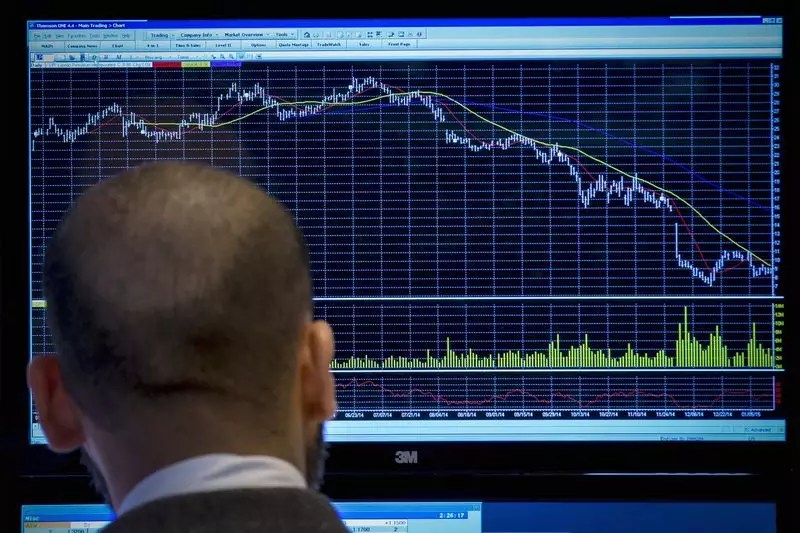Bitcoin, the foremost cryptocurrency, has recently achieved record heights, reaching an all-time high that nearly grazes the coveted $100,000 mark. This remarkable ascent can be attributed to a confluence of factors, particularly the heightened optimism surrounding regulatory frameworks under the incoming Trump administration. As of now, Bitcoin has experienced a phenomenal increase in value, more than doubling since the beginning of the year and posting a staggering 45% gain after Trump’s significant electoral victory on November 5. Such performances indicate a paradigm shift for Bitcoin, transitioning from a niche asset to a potential cornerstone of mainstream finance.
On a particular trading day, Bitcoin surged past $99,800 but later consolidated to around $99,383, marking an increase of 1.33% for that day alone. This volatile yet upward momentum suggests a resilient investor sentiment, implying that Bitcoin could be heading towards its third consecutive week of gains above 10%. Moreover, this performance positions the cryptocurrency for its best monthly results since February, underscoring a renewed confidence in Bitcoin as a major player in the financial market.
The recent boom in Bitcoin is often categorized as part of the so-called “Trump trades”—a series of financial movements spurred by anticipated benefits from Donald Trump’s economic and regulatory strategies. His administration’s pro-crypto stance, which promises to foster a favorable atmosphere for digital assets, has likely attracted a wave of investments. Promises to position the United States as the “crypto capital of the planet” have invigorated the market, as investors forecast a more accessible and less scrutinized avenue for cryptocurrency transactions.
Shane Oliver, chief economist at AMP, articulates the unique challenge of valuing Bitcoin, noting that its true value remains elusive and subject to speculation. However, he acknowledges a notable momentum in the market, suggesting investor sentiment is leaning towards further growth.
The regulatory landscape plays a pivotal role in determining the trajectory of Bitcoin and other digital currencies. Recent declarations by U.S. Securities and Exchange Commission (SEC) Chair Gary Gensler, who signaled his departure upon Trump’s inauguration, have contributed to this optimistic view. Gensler presided over a critical period filled with scrutiny towards cryptocurrency exchanges, as illustrated by lawsuits against major platforms like Coinbase and Kraken alleging non-compliance with SEC regulations.
Under the previous administration, the SEC’s regulations instilled a sense of apprehension among investors. However, the incoming administration has sparked hopes of easing these restrictions. This renewed environment could facilitate wider adoption among institutional investors, especially following the approval of U.S.-listed bitcoin exchange-traded funds (ETFs). The approval process had long been stalled due to concerns over investor protection, but the recent introduction of ETFs has unlocked approximately $4 billion into the Bitcoin markets post-election.
Market Reactions and Future Implications
Despite the recent pause in Bitcoin’s rapid ascension, trading activity remains vigorous. Companies like MicroStrategy, renowned for its strategic acquisition of Bitcoin, closed significantly higher on a recent trading day, illustrating the unwavering belief in Bitcoin’s potential as a hedge against inflation and a store of value.
As the cryptocurrency market continues to evolve, analysts suggest that Bitcoin’s integration into the mainstream financial system is more plausible than ever which could pave the way for a new era where digital currencies are embraced on an institutional level. However, challenges remain, particularly in establishing a stable regulatory environment that balances innovation with consumer protection.
Bitcoin’s surge reflects a critical juncture in the evolution of digital assets. As it approaches the $100,000 benchmark, various economic, regulatory, and social factors converge to position Bitcoin as not merely a speculative asset but as a significant component of the future financial landscape. The path ahead will undoubtedly be complex and dynamic, but the momentum indicates a sustained interest and investment in this pioneering form of currency.


Leave a Reply